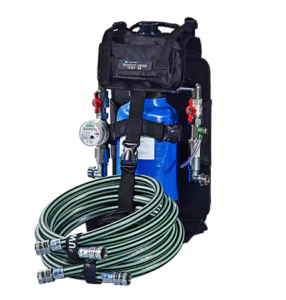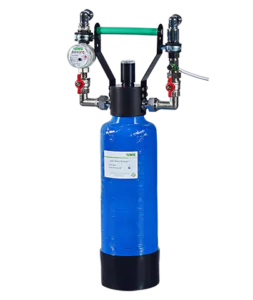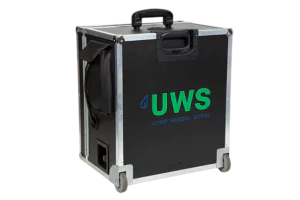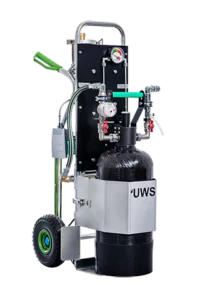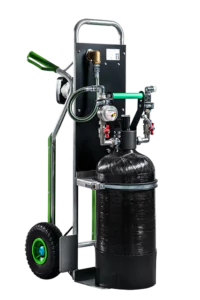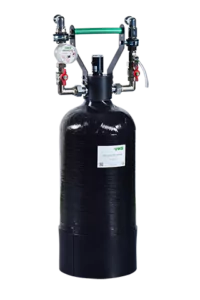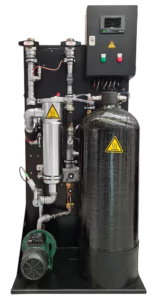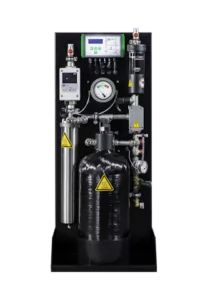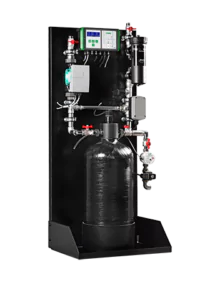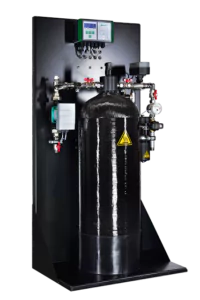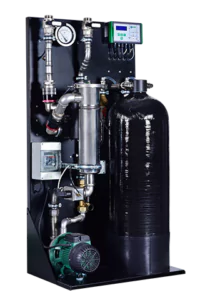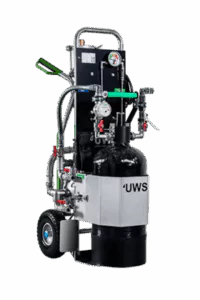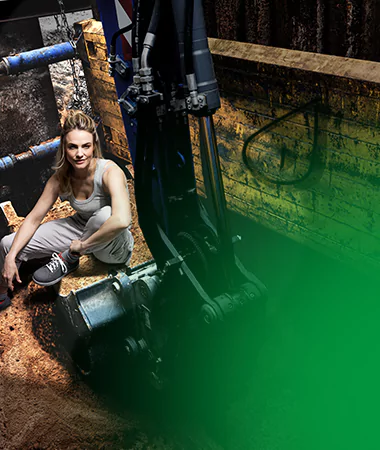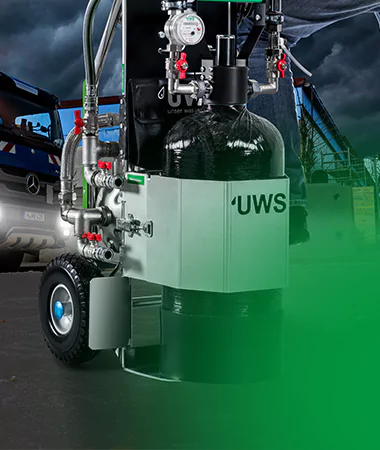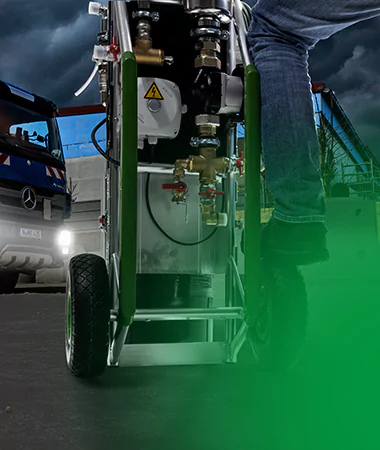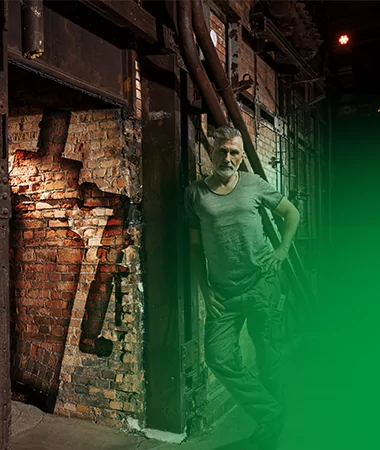Heating water treatment and filling
The right heating water quality is crucial to prevent damage and maintain warranty claims. Our devices for heating water treatment guarantee compliance with the important standards VDI 2035, ÖNORM H 5195-1 and SWKI BT 102-1.
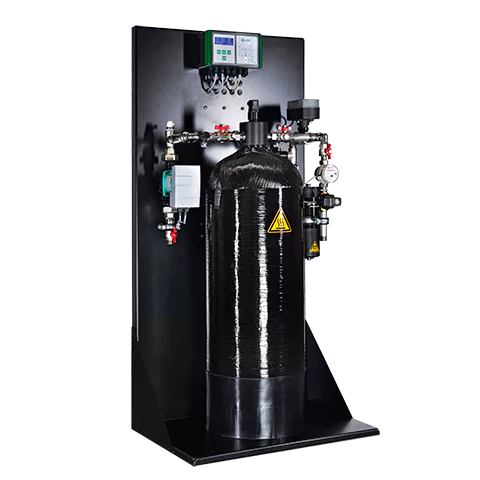
Heating water treatment and filling devices for professionals
No system is too small or too large for us. You can fill any size of system with our mobile and stationary treatment units. This ranges from small maintenance work to floor heating systems with a capacity of 50 liters to local heating networks with a water capacity of several 100 m³. We have the perfect solution for all heating water treatment requirements. We achieve values that meet all manufacturer specifications and are also suitable for all materials. This is particularly advantageous for the frequently encountered mixed installations.
HVAC specialists encounter a wide variety of premises and conditions. They prepare small quantities for repairs, have to go to hard-to-reach filling locations such as high-rise buildings with self-contained heating systems, or carry out customer services. Our compact small treatment units are ideal for these situations.
For small system and buffer tank systems such as single-family homes, you need treatment units for filling volumes up to 1,500 litres or 50 kW. Simply click through the various solutions for small heating systems.
You are on the safe side with UWS reprocessing devices
The water in heating systems plays the main role in the smooth operation and service life of the system. VDI 2035 is the working basis for heating water treatment during installation, filling and maintenance. On its way through the heating system, the water comes into contact with almost all parts and can cause massive damage. This begins with oxygen in the system and continues with deposits of sludge and limescale through to corrosion.





For small and medium-sized systems with buffer tanks up to 200 kW or 2,000 litres, or up to 3,000 litres with pure system water content, you can get all-in-one units for professional bivalent bypass treatment as well as sludge and magnetite filtration in the hot water section. Safe, simple and flexible.
The filling capacity of these treatment units ranges from 600 to 1200 l/h. They have a capacity of 1350 to 3450 litres to treat water from 420 µS/cm to < 100 µS/cm.
With UWS treatment devices, you are on the safe side when it comes to heating water treatment
Our treatment devices are available for any size of system. The heating manufacturers set strict specifications for the water values, otherwise the guarantee will be invalidated. Insurance companies also use these values in the event of damage. However, in addition to the manufacturer’s specifications, a HVAC company should always look at the system as a whole and follow VDI 2035 to ensure that the treated water is suitable for all materials in the overall system.






Larger units are needed for residential complexes, office or commercial properties, systems of 200 kW or more, CHP units or systems that are transitioning to contracting. Especially in the case of recurring problems with the heating water, you can also set up an all-inclusive package as a stationary system. The units in our Racun range automatically fill, treat and monitor the quality of the heating water.
Once the water quality corresponds to the set parameters, the units switch off. If the water quality deteriorates again, the treatment systems switch on again automatically. You can purchase the units in the Racun range, rent them or have the water treatment carried out by us as a service. You can integrate the unit into the building management system in several ways.
You are on the safe side with UWS reprocessing devices
Stone formation, corrosion and magnetite are frequent causes of damage in the event of problems with the heating system. For these reasons, VDI 2035 specifies guide values for the heating water. These form the basis of many warranty conditions – which planners, installers and operators should always keep in mind. If the specified guidelines are not adhered to, there is a risk of the manufacturer refusing commissioning, denial of the warranty claim in the event of damage and loss of performance and efficiency.










